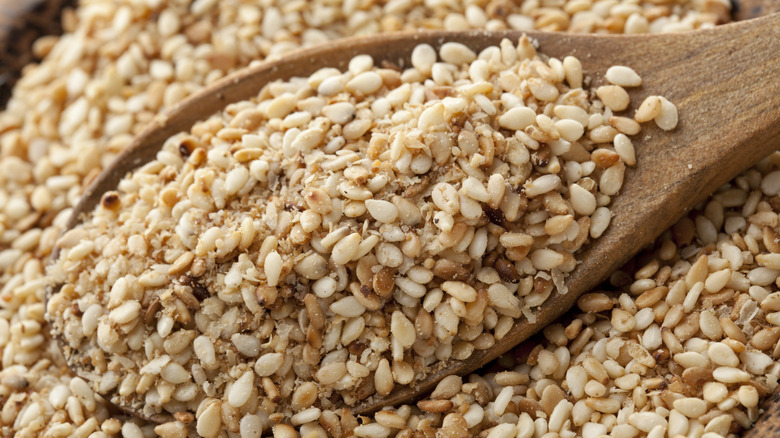Can Eating These Tiny Seeds Prevent Prostate Problems? We Explain
Prostate problems can occur in men of any age, although conditions like an enlarged prostate, otherwise known as benign prostatic hyperplasia (BPH), typically happen with age. Changes in the cells of the testicles and testosterone level fluctuations are thought to cause an enlarged prostate. Another common health issue related to the area is prostate cancer.
Since the prostate, a walnut-shaped gland, is located close to the bladder, rectum, and upper section of the urethra, problems in this area can lead to uncomfortable symptoms like painful urination, frequent urination, painful ejaculation, etc.
Diet is something that experts talk about in relation to maintaining a healthy prostate. Consuming whole grains, fruits and vegetables, and healthy fats, while limiting processed meats and sugars is likely the most general form of advice you'd get about foods to boost your prostate health. However, there is one tiny seed that could play a sizeable role when it comes to conditions like an enlarged prostate and prostate cancer. We're referring to sesame seeds. With origins in Asia, East Africa, and ancient Egypt, sesame seeds belong to a plant family called Pedaliaceae. Known for their nutty and crunchy texture, they are most commonly used in salads, stir-fries, marinades, and as toppings on bagels. Why are sesame seeds good for prostate health?
Sesame seeds are rich in zinc
Zinc is a mineral that you may have heard discussed in relation to certain prostate conditions. According to a 2020 study in Frontiers in Oncology, zinc deficiency was associated with an increased risk of benign prostate enlargement. You will find as much as 7.75 milligrams of zinc in just 100 grams of sesame seeds, per the U.S. Department of Agriculture. Three tablespoons (30 grams) of sesame seeds (unhulled) contain up to 21% of your recommended daily intake, and the hulled version contains 18%, per Healthline.
According to Dr. Robert Ashley, internist and assistant professor of medicine at the University of California, Los Angeles (via Chicago Sun Times), zinc is important for a variety of human physiological functions, and although you can find the mineral in the liver, kidney, muscle, and retina, "the content of zinc in the prostate is about 100 times that found in the bloodstream." However, although zinc is thought to mess with the generation of the hormone linked with prostate enlargement (dihydrotestosterone), preserve prostate tissue structure, and even assist in killing off infectious bacteria, there is a need for more research when it comes to showing causation between low zinc levels and the prevalence of BPH.
Prostate cancer, on the other hand, is a different story. "Multiple lab studies have shown that zinc can inhibit prostate cancer growth by hindering the function of prostate cancer cells and by turning on mechanisms that lead to the death of prostate cancer cells," explained the expert. High zinc levels were associated with a protective role against prostate cancer, per a 2024 review.
Eating sesame seeds for prostate health: What to consider
Sesame seeds are not just good for prostate health. They have antioxidant properties that aid with fighting infections and contain plant compounds that can lower your cholesterol, to name a few. For anyone who's ever used them in your cooking, you probably already know that the tiny seeds can be eaten raw, baked, or toasted.
However, the American Academy of Allergy, Asthma, and Immunology lists sesame seed allergy as one of the most common in the U.S. If you're allergic, you could experience swelling in your throat, wheezing, coughing, chest tightness, skin rashes, nausea, vomiting, and difficulty breathing. Symptoms can be severe and life-threatening, too.
If you're not allergic, they are a good way to add more zinc to your diet. Getting zinc from natural food sources is better than turning to supplements. One reason is because your body absorbs it more efficiently. Additionally, there's also the risk of overdosing with supplements, according to Weill Cornell Medical College and New York Presbyterian Hospital physician Dr. Keith Roach (via Oregon Live). "I have seen a dramatic case of zinc overdose from zinc supplements, causing a copper deficiency with severe effects on the man who took the excess doses of supplements," warned the expert. Maintaining prostate health is not just about food, however. There are other natural things men can do to boost their prostate health as they age.


